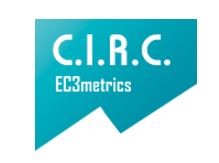Authors
Abstract
Abstract: If complex mental disease are affecting not only persons who present troubles, but also their close relatives, the way to proceed needs new and specific family interventions in a therapeutic purpose. Most often the demand comes from professionals involved in the care. They have to deal with the reduction of individual and family autonomy. The first step is to delimit the fields of shared helplessness, in a way to enhance the therapeutic potentialities, which appear at the boundaries of these fields which appeal to the life ecosystem’s resources. Then the focus of therapy is today life-axis than history, prospective rather than retrospective. The urposes are to help and hold the family members, to relieve their sufferings, to reduce their anxieties, to offer a space of humanity, of conversation, of elaboration about what happens, of emotional and cognitive sharing.
Keywords:
References
Bateson, G. (1991). Une unité sacrée. Paris, France: Seuil.
Fossion, P. et Rejas, M-C. (2007). Prise en charge des familles traumatisées l’apport de Siegi Hirsch. Thérapie Familiale, 3 (28), 231-247.
Janet, P. (1919). Les médications psychologiques. Paris, France: L’Harmattan.
Janet, P. (1923). La médecine psychologique. Paris, France: L’Harmattan.
Miermont, J. (1995). L’Homme autonome. Paris, France: Hermés.
Miermont, J. (2010). Thérapies familiales et psychiatrie. Annales Médico-psychologiques, revue psychiatrique, 168 (1), 75-83.

 PDF (Español)
PDF (Español)
 FLIP
FLIP




















